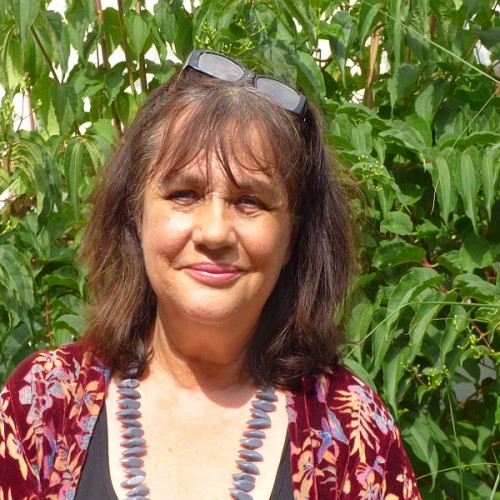
Adult Counselling
This information is here to help you make an informed choice about your mental health. However, the most important thing is to find the right therapist for you. Please feel free to continue reading or jump straight to Meet Our Practitioners.
Types of Practitioners
What is a Counsellor?
Counselling is as old as the Ancient Greeks!! A counsellor will help you explore what is happening in your life. They will encourage you to come to a greater understanding of your environment and help you to make changes that will lead to a stronger emotional state.
They will assist you in mapping a way out of the difficulties you are facing and support you while you learn to make better life choices. They offer confidential one-to-one, short term and long term counselling that is unique and tailored to your specific needs.
You can usually expect to pay between £40 - £90 per session. Couples counselling is usually between £70 - £100 per session.
What is a Psychotherapist?
A psychotherapist is very similar to a counsellor in that they will help you examine and come to an understanding of your problems. They will provide you with the necessary skills to overcome your struggles and enable you to help yourself to a better emotional place.
Quite often counselling is an intricate journey that can take time in order for you to reach a better and more positive place in your life. As such psychotherapists specialise in long term therapy. You can usually expect to pay between £50 - £100 per session.
What is a Clinical Psychologist?
A Clinical Psychologist first has to complete a degree in psychology and then undertakes further clinical training to doctorate level.
Clinical psychologists are trained to work with individuals with behavioural, emotional and/or psychological distress which disrupts their everyday functioning and well-being. They aim to reduce distress and to enhance and promote psychological well-being. They are trained in providing more than one type of therapy, one of which will be CBT.
After an initial assessment by the psychologist, you will work collaboratively to summarise your difficulties, to explain why they may be happening with the aim of making sense of them (this is called a formulation). You of course are the expert in you, the psychologist has clinical expertise and experience. The formulation acknowledges your strength and resources and helps to identify therapeutic goals to reduce psychological distress and promote psychological well-being. Working on a formulation is like two people putting together a jigsaw.
What is a Psychiatrist?
A psychiatrist is a medical practitioner who specialises in the study, diagnosis and treatment of mental disorders. They usually specialise in a specific field of which they have spent a minimum of five years studying.
They often deal with the more difficult issues. They are able to prescribe medicines. You can usually expect to pay between £250 - £380 per hour.
Types of Counselling
Person Centred: As the name suggests this mode of therapy concentrates very much on the person and uses the relation between the counsellor and the client to help the client understand what is happening in their world. This is a very collaborative process.
Psychodynamic: A therapy that helps clients examine not just what is happening consciously but also taps into the unconscious mind, thus enabling the therapist to interpret and bring the unconscious into the conscious. This, then, enables the client to have a much clearer picture of why they may be struggling. This type of therapy tends to be more long term - almost like a voyage of discovery.
Existential: This type of therapy focuses on the struggle we have as humans with being and nonbeing and our place in the world. Existential therapy uses a strong philosophical understanding to help the client better understand what is happening in their internal world and also how the environment can be contributing to the difficulties they are facing.
Cognitive Behavioural therapy (CBT): Talking therapy that can help you manage your problems by changing the way you think and behave. It is most commonly used to treat anxiety and depression, but can be useful for other mental and physical health problems.
Integrative: An integrative therapist will take some of the main modalities of therapy and integrate them to form a consistent and unique way of working to best help the client. This can be a very powerful form of therapy as it can be tailored to meet the individual needs of the client. Usually integrative therapists will use an effective combination of Person Centred, Psychodynamic and Cognitive Behavioural Therapy.
We are pleased to say that we meet the standards of the EHC referral process, and are now accepting Education, Health, and Care (ECH) plan referrals.
Helpful articles often written by our fabulous practitioners.
Find a Practitioner:
MSc Psychotherapy and Counselling, BSc Integrative Counselling, MSAFPAC, UKCP Acred, Supervisor (Children 11+ - adult)
As an integrative practitioner Samantha draws on several different theoretical approaches to suit her clients’ needs. She creates a safe non-judgmental space for her clients to feel supported and heard.
Adv dip. Counselling & Psychotherapy (accredited), BA (hons), Dip. Individual and Group Supervision, Cruse, MBUPA
Susie has been a counsellor/psychotherapist for 20 years and specialises in working with people with life limiting illness, bereavement and loss.
MSc UKCP Registration Number 2011162654
Randi is a Systemic and Family Psychotherapist who works with individuals of all ages, couples and families with a variety of difficulties such as depression, anxiety, stress, family conflict, marital difficulties as well as eating disorders.


